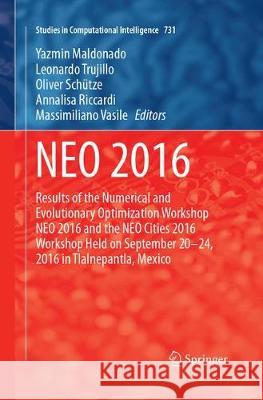Neo 2016: Results of the Numerical and Evolutionary Optimization Workshop Neo 2016 and the Neo Cities 2016 Workshop Held on Sept » książka
topmenu
Neo 2016: Results of the Numerical and Evolutionary Optimization Workshop Neo 2016 and the Neo Cities 2016 Workshop Held on Sept
ISBN-13: 9783319877129 / Angielski / Miękka / 2018 / 282 str.
Neo 2016: Results of the Numerical and Evolutionary Optimization Workshop Neo 2016 and the Neo Cities 2016 Workshop Held on Sept
ISBN-13: 9783319877129 / Angielski / Miękka / 2018 / 282 str.
cena 403,47
(netto: 384,26 VAT: 5%)
Najniższa cena z 30 dni: 385,52
(netto: 384,26 VAT: 5%)
Najniższa cena z 30 dni: 385,52
Termin realizacji zamówienia:
ok. 22 dni roboczych
Bez gwarancji dostawy przed świętami
ok. 22 dni roboczych
Bez gwarancji dostawy przed świętami
Darmowa dostawa!
Kategorie:
Kategorie BISAC:
Wydawca:
Springer
Seria wydawnicza:
Język:
Angielski
ISBN-13:
9783319877129
Rok wydania:
2018
Wydanie:
Softcover Repri
Ilość stron:
282
Oprawa:
Miękka
Wolumenów:
01











